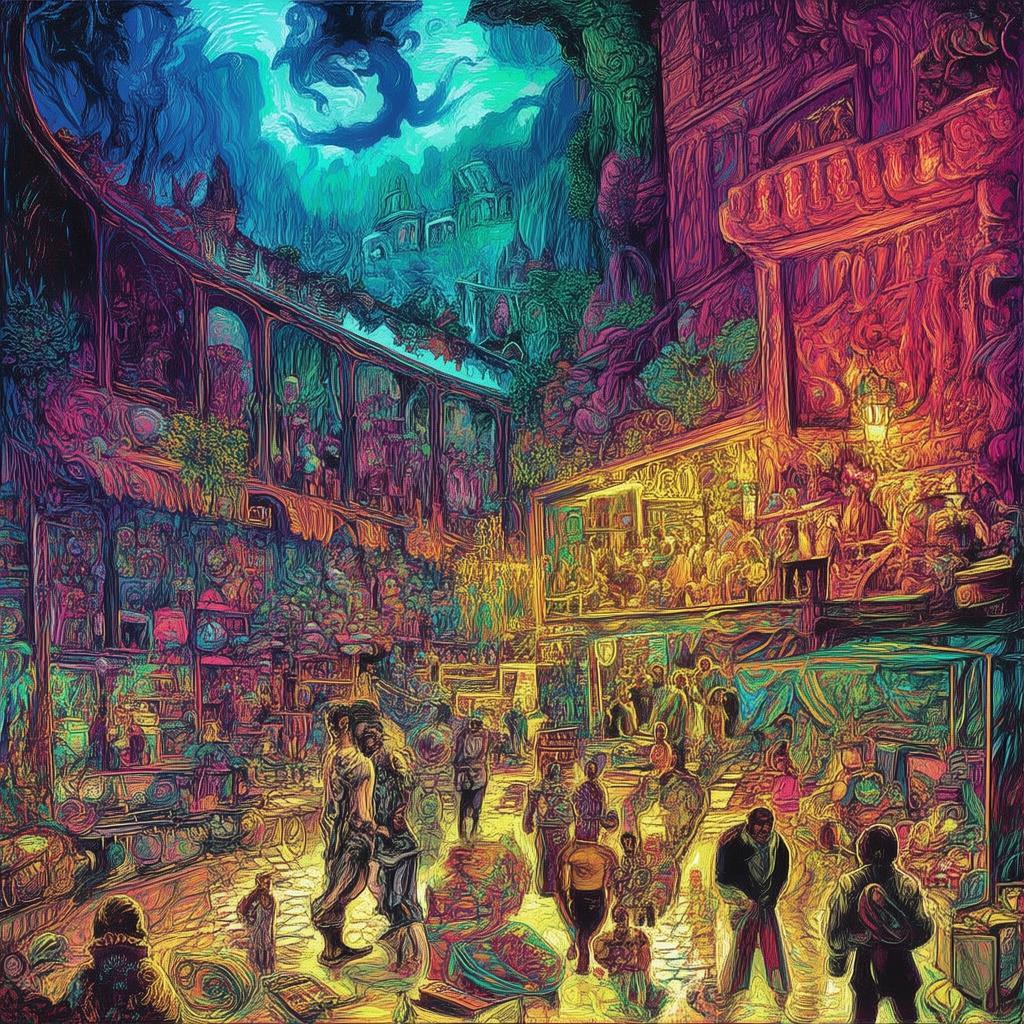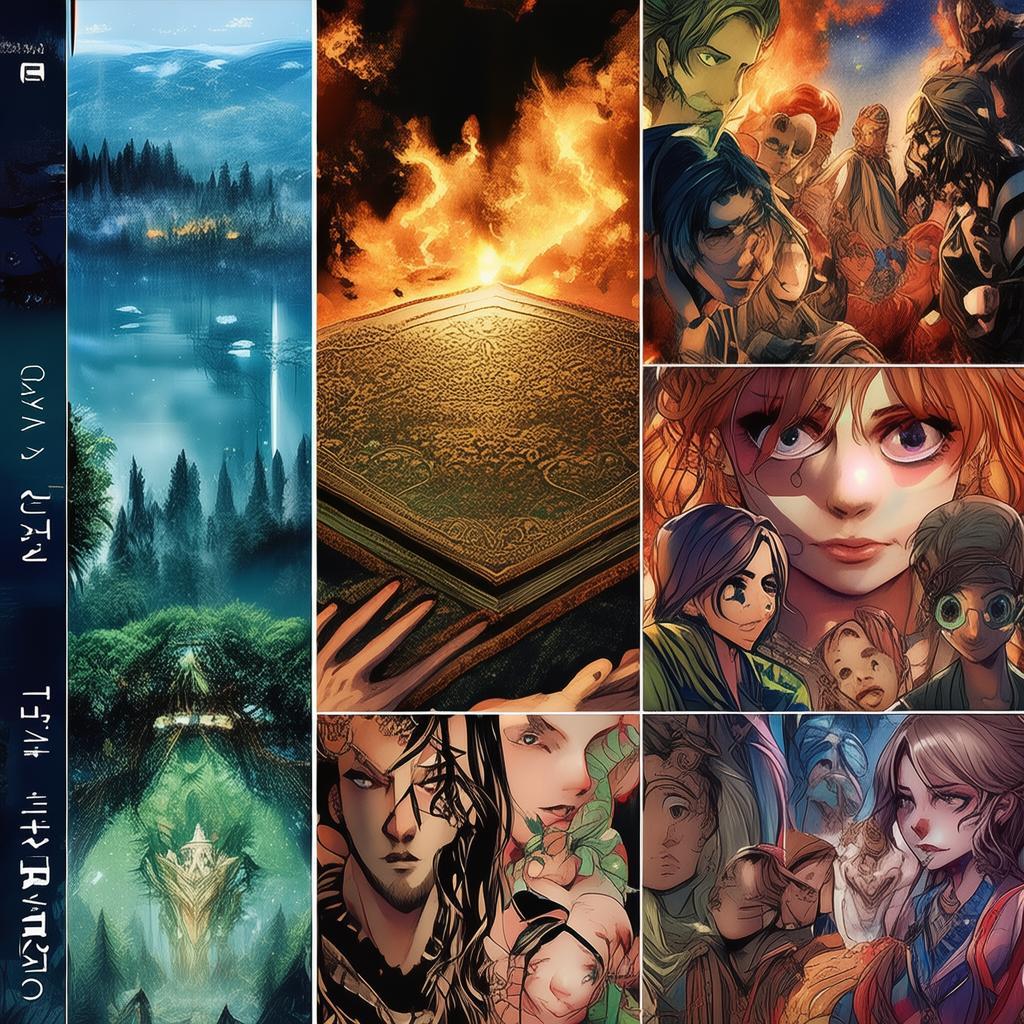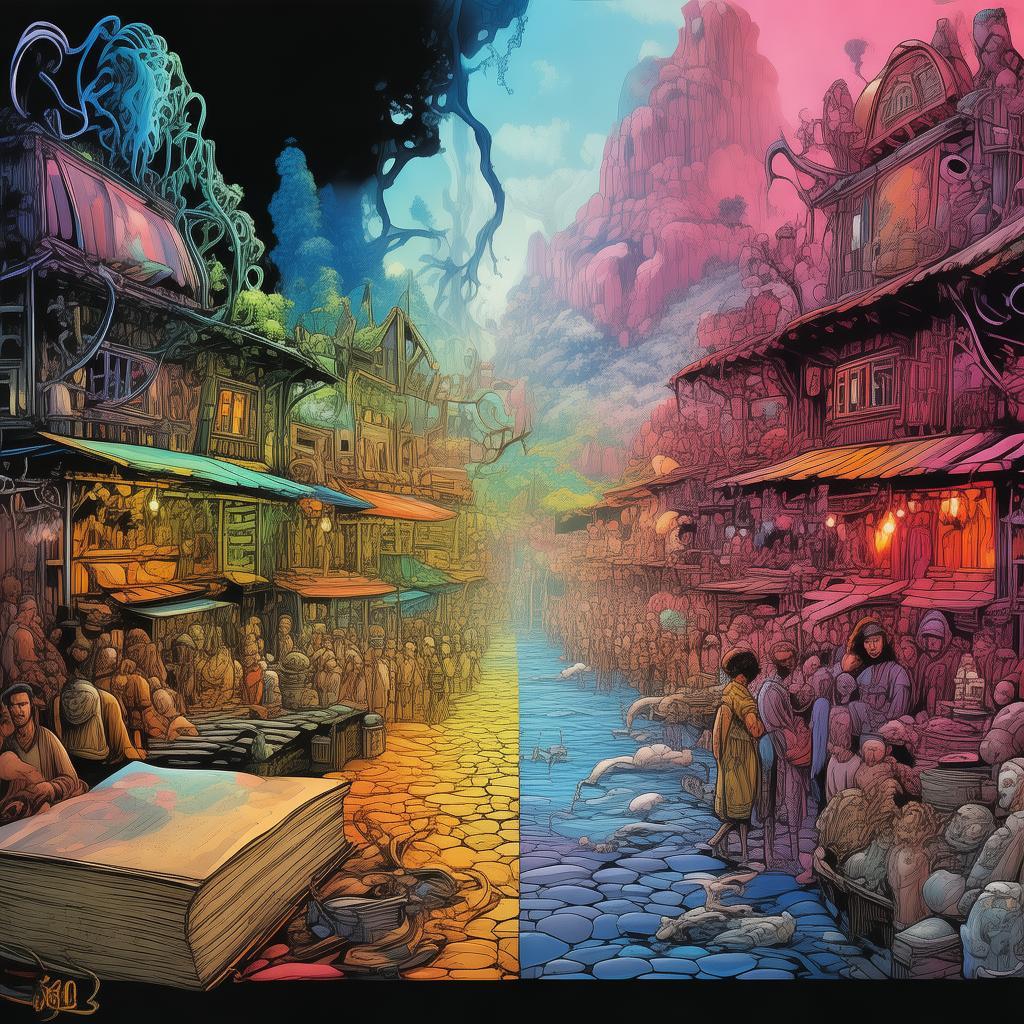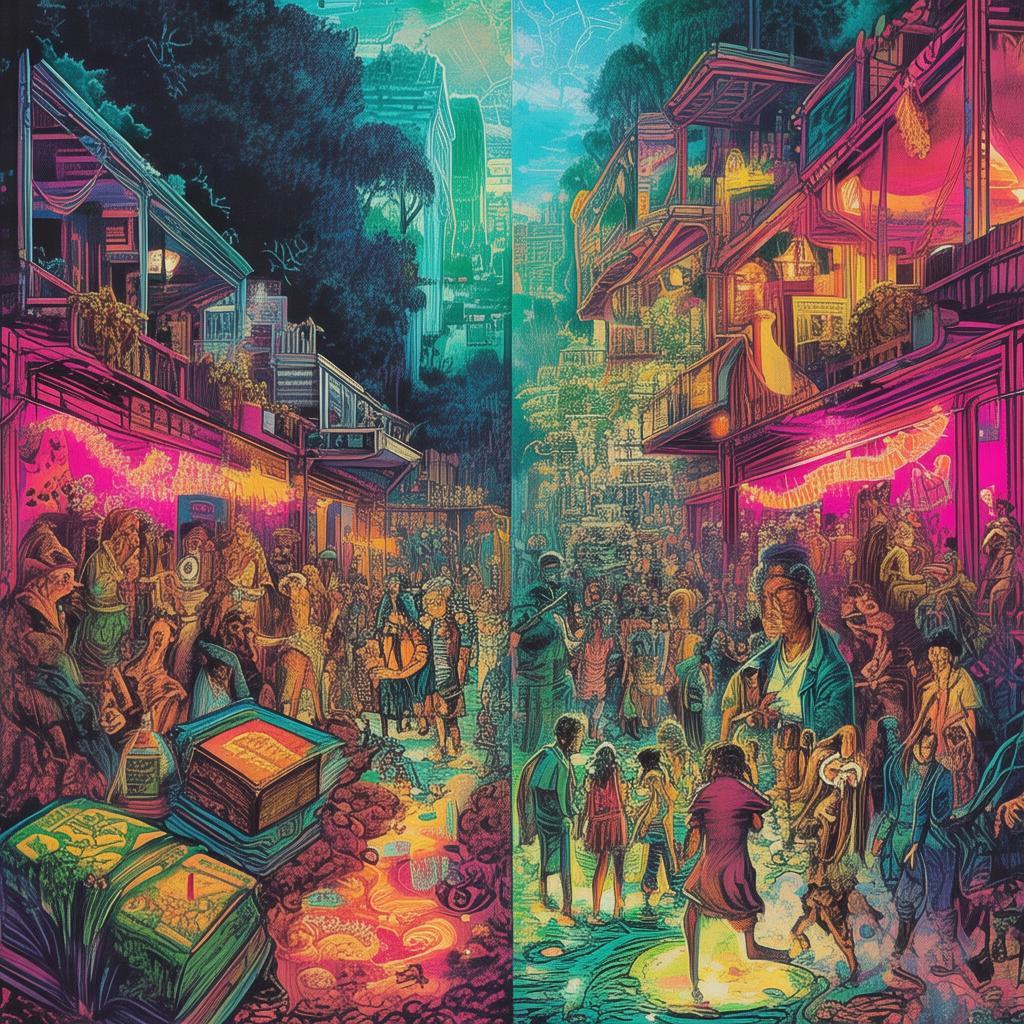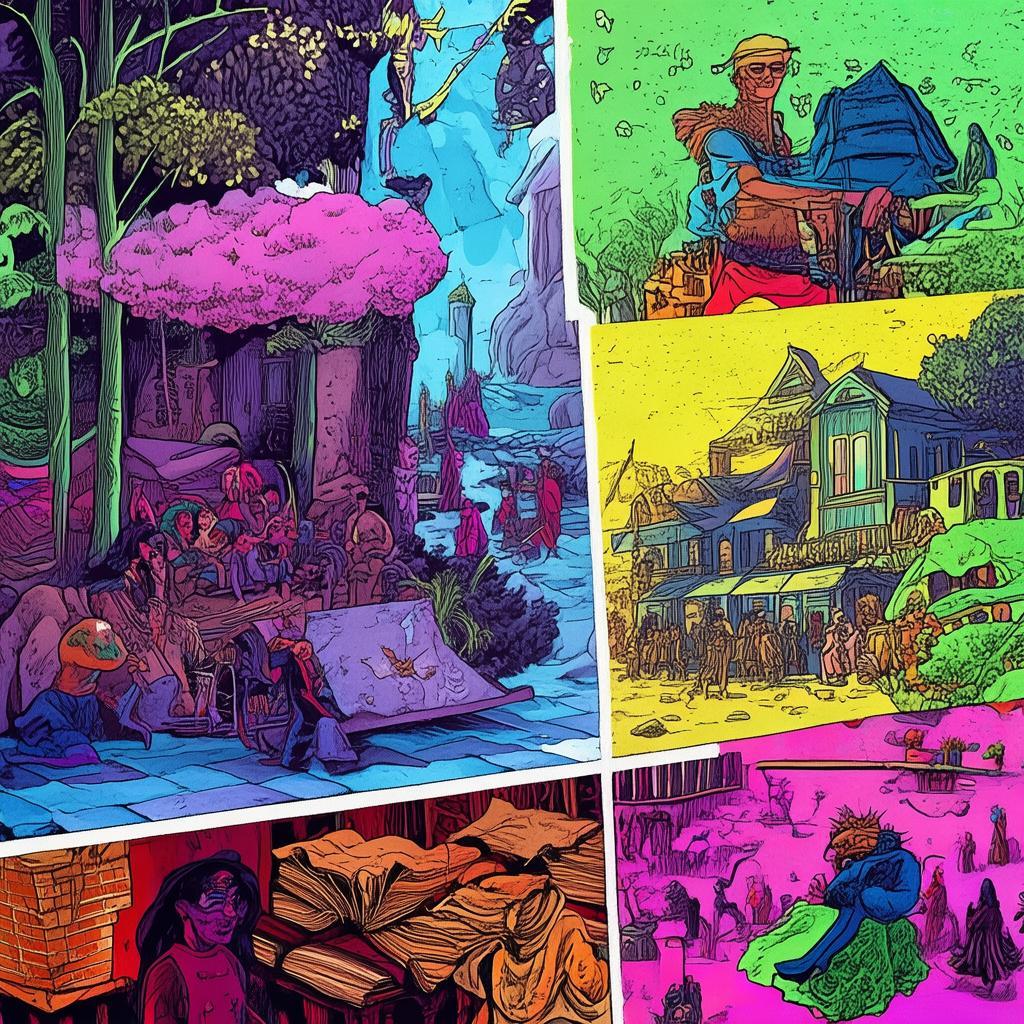Shadows of Virtue: A Tale of Moral Collision
The night was as silent as the grave, and the rain lashed against the windows of the old, abandoned mansion like the tears of the forsaken. Inside, two figures sat huddled around a flickering candle, their faces illuminated by the eerie glow. One was an elderly man, his eyes deep and weary, the other a young woman, her face etched with the lines of struggle and confusion.
"Virtue's Veil," the old man murmured, his voice barely above a whisper. "The choice lies before you, and it is one that will define your existence."
The young woman, her name was Elara, looked up from the letter she had been reading. The letter was from her late father, a man she had never truly known. It spoke of a secret, a hidden truth that had the power to shatter the foundations of her world.
"Why must I choose?" Elara's voice was barely a whisper, yet it carried the weight of the world.
The old man, known to the world as The Mentor, leaned forward, his eyes meeting Elara's. "Because virtue is not just a moral compass; it is a veil that masks the true self. It is a choice, one that you must make in the quietest of moments, when no one is watching."
Elara's mind raced. The letter spoke of a choice between her family and her destiny, between the life she had always known and the life she could only imagine. She thought of her mother, a woman who had raised her alone, who had instilled in her the values of honesty and integrity.
"What if I choose wrong?" she asked, her voice trembling.
The Mentor smiled, a hint of sadness in his eyes. "Then you must live with the consequences, as we all must. But remember, the true test of virtue is not in the choice you make, but in the character you reveal."
Elara's mind was a whirlwind of emotions. She thought of her father's words, of the promise he had made to her. She thought of her mother, who had always believed in her, who had always encouraged her to seek the truth.
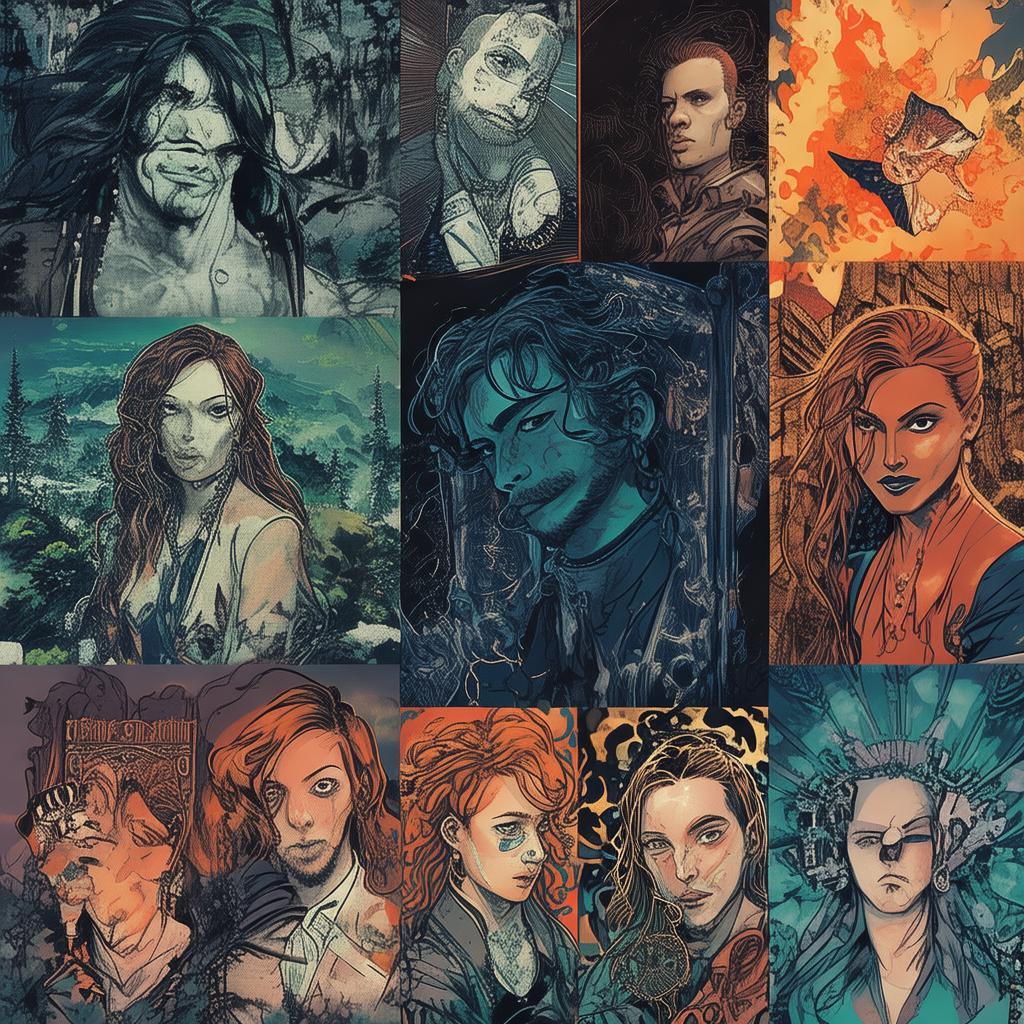
Then, she looked at the Mentor, and something inside her shifted. She felt a connection, a kinship with the man who had sat there for hours, waiting for her to come to this moment.
"Teach me," she said, her voice steady and resolute.
The Mentor nodded, and the room seemed to grow brighter. "The first lesson is this: virtue is not a destination, but a journey. It is not about the choices you make, but about the person you become."
Elara listened, her mind racing. She thought of the choices that lay ahead, of the path she must walk. She thought of the Mentor, who had offered her guidance, who had given her a chance to see beyond the veil of virtue.
The next morning, Elara stood on the precipice of her destiny. The choice was clear, but the path was not. She had to decide between her past and her future, between the life she knew and the life she could have.
She looked around, at the world that seemed to hold both promise and peril. She saw the shadows of virtue, the veils that hid the true nature of things. And in that moment, she made her choice.
She chose the journey, the path that would lead her to the truth, to herself.
And so began the story of Elara, of her moral collision, and of the virtue that lay beyond the veil.
The tale of Elara and the Mentor was not just a story of choices; it was a reflection on the human condition, on the struggle between the moral and the practical, between the known and the unknown. It was a story that resonated with the reader, inviting them to consider their own choices, their own virtues, and the journey they were on.
The Mentor had spoken the truth: virtue was not a destination, but a journey. It was a path that required courage, resilience, and a willingness to face the shadows within.
Elara's story was one of growth, of transformation. It was a story that showed that the choice to seek the truth, to face the shadows, was the truest form of virtue.
And as the rain continued to fall, as the candle continued to flicker, Elara stood firm, her eyes set on the horizon. She had chosen the journey, and she was ready to face whatever lay ahead.
For in the end, virtue's veil was not a barrier, but a guidepost, a reminder that the true self was always within reach, just beyond the veil.
✨ Original Statement ✨
All articles published on this website (including but not limited to text, images, videos, and other content) are original or authorized for reposting and are protected by relevant laws. Without the explicit written permission of this website, no individual or organization may copy, modify, repost, or use the content for commercial purposes.
If you need to quote or cooperate, please contact this site for authorization. We reserve the right to pursue legal responsibility for any unauthorized use.
Hereby declared.
